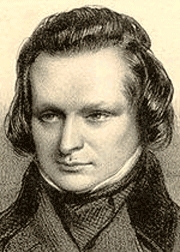On this date in 1802, author Victor Marie Hugo was born in Besançon, France, the son of a Napoleonic officer. By 17 he had earned three prizes for poetry at Toulouse. King Louis XVIII awarded Hugo a royal pension after his Odes and Poetry appeared (1822). His first drama, “Cromwell,” was published in 1827.
After devoting nearly two decades to stage writing, Hugo turned to fiction. His novel, known in English as The Hunchback of Notre-Dame, was published in 1831 and featured a villainous priest. It has been turned into several movies and dramatizations, including a Disney cartoon (which interestingly turned villain Claude Frollo into a layperson). Les Misérables was published in 1862 in 10 languages. The epic tale has spawned several movies and stage productions, including its Broadway debut in 1987.
Hugo was forced to flee to Belgium after Napoleon III’s coup d’etat in 1851. He eventually returned to France when the republic was proclaimed and was elected a senator in 1876. Although his religious views wavered over his long and tempestuous life, Hugo was anti-clerical, freedom-loving and generally considered to have been a rationalistic deist.
He married Adèle Foucher in 1822 and they had five children before her death in 1868. He suffered a mild stroke in 1878 and recovered. He died of pneumonia in Paris at age 83. (D. 1885)


